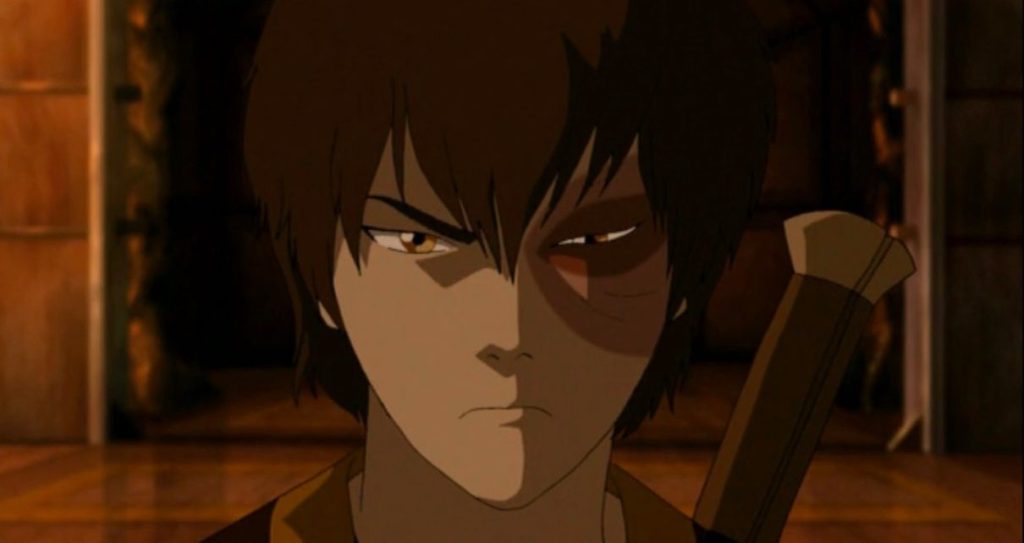It’s our favorite day of the week! That means it’s time to ramble.

Everyone loves a good mentor.
From Obi-Wan Kenobi to Gandalf to Uncle Ben, mentors are important and well-loved characters. They teach the protagonist moral lessons, give physical training, and provide emotional support.
So, of course, they have to die.
It’s sad but true: mentor characters have a tendency to die just when the protagonist needs them most. It’s no accident, either: oftentimes, the mentor’s death serves as a catalyst for the story’s darkest moment (or, Into the Abyss). It’s an essential moment for the protagonist and sometimes even gives them the motivation they need to beat the bad guy and save the day.
Killing your mentor character is a tried and true method of getting an emotional rise out of your protagonist and also forces them to continue their journey alone, which is a goldmine for character growth.
But…it’s also a trope. The death of the mentor has become so ingrained in my head that as soon as I see a mentor archetype or parental figure who is even the slightest bit wise and/or gentle, I immediately think, “Welp. I wonder how long it’ll take for this guy to bite the dust.”
Welp. I wonder how long it’ll take for this guy to bite the dust.
– Me, upon seeing Uncle Ben for the millionth time
It’s true that not every mentor dies. But a lot of them do, and I think it’s time for this particular trope to be subverted.
Here are some of the usual subversions…
– The mentor is a villain! (Iron Man)
– The mentor knows less than you first assume! (Kung Fu Panda)
– The mentor faked his/her own death! (Gandalf…kinda)
These poor mentors deserve better than to be killed off as soon as their usefulness as worn out. Is this really how we treat our elders?
I’ll admit: it’s pretty dangerous to include a character who is too wise. If the mentor is all-knowing or too powerful, then the protagonist will have no chance to shine. But allow me to turn your attention to one of my favorite mentor characters of all time and how he escaped the Mentor Curse.
Meet Uncle Iroh.

Yes, I’ve established my love of Avatar: The Last Airbender and Uncle Iroh in many ramblings (the most recent of which would be the Evil Uncle Syndrome rant, which I’m proud to say, he escaped as well). But this is a mentor character who escapes all the tropes and the most-used subversions and still manages to let the protagonist shine.
(Quick note: Avatar isn’t perfect. While Uncle Iroh is a mentor character who lives and doesn’t fall to the Mentor Curse, the true protagonist of the series, Aang, does have a mentor who dies in exactly the way you’d expect from the Curse. RIP Gyatso. Some mentors just can’t escape.)
Uncle Iroh is the mentor to his nephew, Zuko, who serves as both an antagonist and a protagonist throughout the series (it’s complicated). The point is, and I’m getting into SPOILER territory now (you’ve been warned), that Iroh Uncle is a mentor who teaches his mentee moral lessons, gives physical training, and provides unwavering emotional support…and he does it all without dying, turning into a villain, or outshining his mentee.
During seasons 1 and 2, Iroh is a constant source of wisdom in Zuko’s life. But when Zuko pushes him away at the end of season 2, a decision that lands Iroh in prison, we spend almost the entirety of season 3 without Iroh’s advice. This, in turn, leads to some of the most interesting character development from an animated series meant for kids. Because of Iroh’s advice throughout seasons 1 and 2, and because of his absence in season 3, Zuko gets to shine.

If you want to spare your mentor, then just take them away for a while. J.R.R. Tolkien did this – a lot – during The Hobbit and The Lord of the Rings. Sometimes, during a journey that Gandalf himself forced the heroes into, the wizard would step away to take a side journey real quick. Next thing you know, our heroes are facing certain doom when ole Gandalf arrives late to the fight with Starbucks, all like, “What did I miss?”

What did I miss?
– Gandalf, arriving late with Starbucks
If you decide to take your mentor away from the story, I would recommend having a reason for the absence that’s relevant to the story and not just because you need the mentor to take a hike for a while. And it’d be more beneficial to the growth of your protagonist if the mentor doesn’t bail them out of trouble (unless that’s part of the central conflict).
To be honest, I’m not sure where I’m going with all this, except to shed some light on the Mentor Curse and ask how we can save our mentors and not kill them for the betterment of their mentees.
So, let this be a lesson to you, kids: You don’t need to kill your betters in order to better yourself. Or…Well, I guess that’s a good lesson but it’s kind of a given. Let’s try this: Take stock of your characters and don’t waste any with good potential by needlessly killing them or making them into surprise villains, unless that’s the natural course of your story. I’m not saying that killing a mentor is bad, or even that it’s lazy writing because it’s not. If a story calls for the mentor’s head, then so be it. (Just please, please, please don’t kill Uncle Ben again. That guy deserves a break.) All I’m saying is that it’s best to really think about how you can make your story different, unique, or just more interesting by subverting or even breaking a trope that takes a certain character archetype for granted.
Be aware. Save a mentor. Pass it on.

Have a great weekend, and hug your mentor!
Photo by Casey Allen on Unsplash
